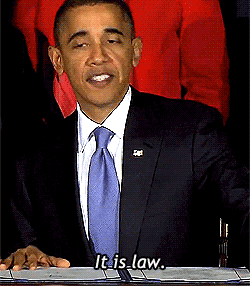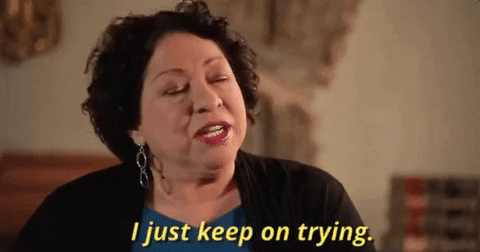Abortion rights, women of color, and LGBTQIA+ people are under attack. Pledge to join us in fighting for gender justice.
Just So We’re Clear, Discrimination in Schools Is Still Wrong and Illegal

I know school discipline can be hard. I used to teach seventh and eighth grade in Philadelphia. Sometimes, it just felt like we were doing what we could to put out fires (sometimes literally!). Especially when I was starting out, I wanted all the help I could find to make sure that the discipline I was enforcing was effective, but also fair. I wanted to ensure that any discipline I imposed in moments of stress wouldn’t make things worse, pushing students to further disengage with my class. Thankfully, in 2014, the Departments of Education and Justice decided to help educators with that issue.
The “Rethinking Discipline” guidance package collected resources and recommendations aimed at ensuring fair discipline, including:
- a Dear Colleague letter on enforcing (existing) civil rights law to end racial discrimination in discipline;
- Guiding Principles with tools for states and school districts to improve school climate;
- an extensive Directory of school climate resources;
- and a Compendium of existing school discipline laws and regulations in the 50 states, D.C., and Puerto Rico.
At the heart of the Dear Colleague letter is the principle that civil rights laws require that schools’ “response [to student misconduct] be undertaken in a racially nondiscriminatory manner.” But if there’s anything the Trump administration hates it’s bipartisan and reasonable values that promote equity in education!

Which is why today, Secretary DeVos rescinded this guidance. Like past guidance rescissions, this doesn’t change the law or what schools should do. It does send a message about which students matter to this administration–and which students don’t.
The Law Hasn’t Changed. You Still Can’t Discriminate in School Discipline
Guidance or no guidance, schools can’t discriminate on the basis of race in school discipline. Title IV prohibits discrimination on the basis of race, color, or national origin in elementary and secondary schools. Title VI prohibits such discrimination by recipients of federal funds (a.k.a. schools). The Department of Education’s Office of Civil Rights must continue to enforce these laws–because, again, they are laws.

This Administration Doesn’t Care about Students’ Rights–and Wants You to Know It
Because this decision does not change any laws, the motive behind it is far more sinister. It’s meant to send a message about which students matter to this administration and which students don’t. The timing of this decision is not a coincidence, amid persisting reports of racial disparities in discipline.
Along with the use of suspensions and expulsions, schools are relying on law enforcement to maintain discipline. This makes the consequences of discriminatory discipline even more devastating and life-altering. These practices disproportionately affects students of color, who don’t misbehave more often or more seriously than white students.
It’s not just that DeVos don’t care–the rescission of this common-sense guidance shows they wanted you to know they don’t care.

States and School Leaders Should Be Better than DeVos
Racial disparities in discipline should still matter to schools, even if they don’t matter to this administration. States and schools can, and should, still follow the guidance.
Many resources on effectively and fairly improving school climate are available. We know that exclusionary discipline is harmful for all children. The work to create safe, supportive school environments must continue.

